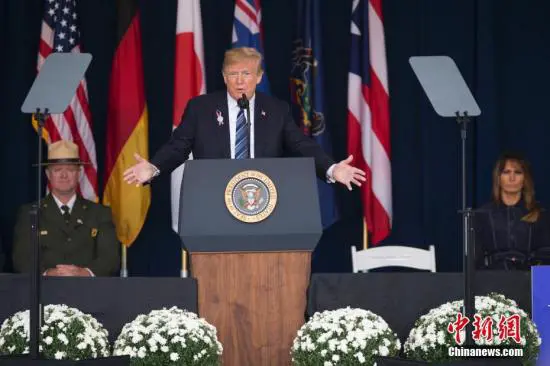In an effort to further open up its market, China has announced to significantly reduce import tariffs on passenger cars to 15 percent and auto parts to six percent, according to the Ministry of Finance (MOF).
Many are wondering what this means for Chinese customers and China’s auto industry as a whole.
In an interview with CGTN, Zhou Mi, deputy director of the Institute of America and Oceania of the Chinese Academy of International Trade and Economic Cooperation, China's Ministry of Commerce, has given his analysis on the impact the policy will have on the retail prices and challenges as well as opportunities for domestic car market.
In his point of view, it is not clear now how much of the savings due to tariffs cuts will be passed on to Chinese customers. But increasing competition in the market may lead to price drops and there will be more choices in the domestic market.
After the announcement was out, some of the foreign auto companies including Porsche, Bentley, BMW, Toyota, Mercedes-Benz, and Ford have also announced that they will reduce its retail prices or evaluate the possibility of adjusting the prices.
Still, the MOF has explained that the retail prices are influenced by many factors and will ultimately be determined by the market itself. The goal of the tariff cutting decision is to win more savings for the customers and promote the competitiveness of China’s auto market.
Such a significant cut on imported cars duty has also made many worry that it could strike China’s own auto brands, as cheaper foreign cars pour into the Chinese market. But Zhou Mi points out that challenges always come with opportunities.
“I believe it will benefit both Chinese customers and auto manufactures in the long run.” Zhou explains that different auto manufacturers and brands are designing the kind of market they are trying to reach and tariff-cuts on imported cars may only influence a limited share of the market.
Currently, most of the imported cars are expensive luxury cars and account for only small part of China’s auto market thus in the short term the influence is limited.
Last month, China has also announced that it would open ownership and joint ventures to more foreign auto companies. It is expected that more famous car manufacturers would actively join China’s market, making China not only the largest, but also the most competitive auto market in the world.
The competition will undoubtedly become fiercer but the pressure could also spur innovation in China’s auto-making sector, accelerating the industry-upgrading process, achieving a “catfish effect.”
As more top technology brands come in, Zhou thinks that it could promote the development of unmanned cars closely related to AI technology, and the electric vehicle market too, thus helping China to reach its sustainable development goal.
“And if we open the ownership, I think some of the companies will come here to start their own businesses here, and there will be a spill-over of the technology. It will increase the credibility and also the sustainability of the vehicles.”
But ultimately, as the MOF explains, this is an important move on the further opening-up road that China already set out on 40 years ago. China has been keeping its promises to the WTO and lowering the tariffs on multiple commodities.
Lowering the tariffs is also conducive to China’s exporting and creates friendly conditions for domestic cars in the global market. As China moves further along the opening-up journey, it is almost certain that more favorable policies will arrive on the way.
(CGTN)
 简体中文
简体中文





